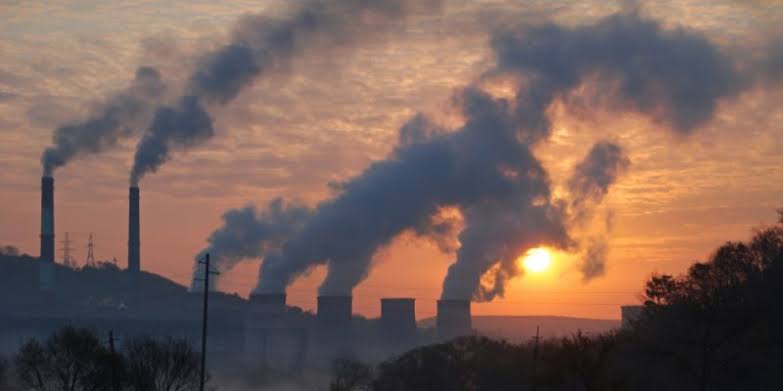Scientists discover how air pollution trigger lung cancer

By Hauwa Ali
Scientists in a new study, have discovered how air pollution triggers lung cancer in non-smokers, through inhalation of tiny particles produced by burning fossil fuel.
The research team from the Francis Crick Institute and University College London analysed the health data of more than 460,000 people in England, South Korea and Taiwan where they found that exposure to tiny PM2.5 pollution particles – which are less than 2.5 micrometres (microns) across – led to an increased risk of mutations in the Epidermal Growth Factor Receptor (EGFR) gene.
They analysed nearly 250 samples of human lung tissue never exposed to carcinogens from smoking or heavy pollution.
Even though the lungs were healthy, they found DNA mutations in 18 percent of EGFR genes and 33 percent of KRAS (Kirsten rat sarcoma virus) genes.
EGFR is a protein found on certain types of cells which is involved in cell signaling pathways that control cell division and survival. Sometimes, mutations (changes) in the EGFR gene cause EGFR proteins to be made in higher than normal amounts on some types of cancer cells. This causes cancer cells to divide more rapidly.
“They’re just sitting there,” Charles Swanton of Francis Crick Institute said, adding that the mutations seem to increase with age.
“On their own, they probably are insufficient to drive cancer,” he said.
But when a cell is exposed to pollution, it can trigger a “wound-healing response” that causes inflammation, Swanton, also chief clinician at Cancer Research UK, which was the main funder of the research, said.
And if that cell “harbours a mutation, it will then form a cancer”, he added.
“We’ve provided a biological mechanism behind what was previously an enigma,” he said.
Air pollution has long been thought to be linked to a higher risk of lung cancer in people who have never smoked and linked to the deaths of more than eight million people a year – almost the same number caused by tobacco.
It has been thought that exposure to carcinogens, such as those in cigarette smoke or pollution, causes DNA mutations that then become cancer.
But there was an “inconvenient truth” with this model, Swanton said: previous research has shown that the DNA mutations can be present without causing cancer – and that most environmental carcinogens do not cause the mutations.
Other research has linked PM2.5 to 250,000 deaths annually from lung cancer alone.
“But we didn’t really know whether pollution was directly causing lung cancer – or how,” Swanton said.
“You and I have a choice about whether we smoke or not, but we do not have a choice about the air we breathe.”
“Given that probably five times as many people are exposed to unhealthy levels of pollution than tobacco, you can see this is quite a major global problem,” he added.
“We can only tackle it if we recognise the really intimate links between climate health and human health.”
Suzette Delaloge, who heads the cancer prevention programme at France’s Gustave Roussy institute, said the research was “quite revolutionary, because we had practically no prior demonstration of this alternative way of cancer forming”.
“The study is quite an important step for science – and for society too, I hope,” she said.
“This opens a huge door, both for knowledge but also for new ways to prevent” cancer from developing, said Delaloge, who was not involved in the research but discussed it at the conference recently.
“This level of demonstration must force authorities to act on an international scale.”
Tony Mok, an oncologist at the Chinese University of Hong Kong, called the research “exciting”.
“It means that we can ask whether, in the future, it will be possible to use lung scans to look for pre-cancerous lesions in the lungs and try to reverse them with medicines such as interleukin 1 beta inhibitors,” he said.
